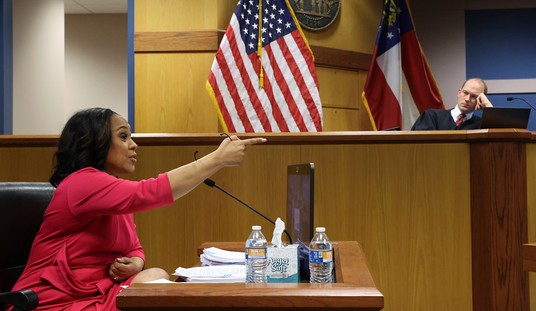The fighters of Libya’s National Transitional Council, the rebel movement turned temporary government, have launched what they say is a “final assault” on Sirte — hometown of ousted dictator Colonel Gaddafi and one of the last redoubts of his supporters.
Thousands of civilians have fled the town, but thousands more are trapped inside, unable or unwilling to leave. The Red Cross reports that conditions inside Sirte are deteriorating, with people dying in the main hospital due to shortages of medical supplies, fuel, and water; food is also said to be in short supply.
There are no reliable casualty figures, although pro-Gaddafi forces — not surprisingly — are reporting hundreds of civilian deaths caused by both NTC fighters and NATO airstrikes. While those claims can’t be verified, with both rebel forces bombarding the town for the past couple weeks it’s inconceivable that civilians are not being killed and injured.
Even if rebel forces aren’t intentionally targeting civilians, the ramshackle nature of the rebel forces and much of their equipment suggests that much of the shelling and rocketing is indiscriminate. Red Cross workers have reported rockets landing among the hospital buildings. (One of the most bizarre rebel weapons that keeps appearing in news footage is a rocket pod — similar to this one which is usually mounted on fighter jets or attack helicopters — bolted to the back of a pick-up truck. Hardly what you’d call a smart munition.)
You could be forgiven for wondering what the NATO forces who are still engaged in Libya plan to do about the situation in Sirte, given that UN Resolution 1973, under which they’re operating, authorizes them to take “all necessary measures” to protect “civilians and civilian populated areas under threat of attack.”
You can download the resolution itself via the link at the top of this report. There’s nothing in it which precludes NATO from protecting civilians who are under threat from rebel forces. Indeed, in the early days of the campaign NATO explicitly warned the rebels that they would be targeted if they attacked civilians.
But far from defending the civilian population of Sirte, NATO warplanes were as recently as Sunday still conducting airstrikes in and around the town in support of the rebels. “Why is NATO bombing us?” asked one man who had fled with his family. It’s a fair question.
NATO had already put a highly elastic interpretation on its mandate under 1973, transitioning swiftly from protecting anti-Gaddafi protesters to flying close air support missions for the rebels. But even if one takes the view that NATO’s actions from the start of its involvement up to the fall of Tripoli were legally and morally justified, it’s hard to argue that the Gaddafi loyalists besieged in Sirte and elsewhere present an imminent threat to the civilian population in areas now under NTC control. Far from protecting civilians, NATO now finds itself in the position of abetting a humanitarian crisis. Civilians in Sirte face a choice between enduring the shelling and the all-out assault on the town that’s likely within the next few days, and fleeing the city if they’re able. The Red Cross estimates that some 10,000 have fled, but that up to 30,000 more may still be trapped.
This report from a Russian news service includes harrowing eyewitness accounts of life and death in the town. Says one woman of the NTC forces:
They say: “We cannot enter Sirte, because there are civilians and we don’t want to attack civilians.” It is not true, they are attacking, bombing civilians randomly. They don’t care, all they care about is that Sirte is “liberated.”
So why are NATO and the American, British, and French governments that were so eager to take charge of the “humanitarian” intervention, not doing more to ensure their safety? And where’s the media outcry, along the lines of the reporting which helped to persuade the West to get involved in Libya in the first place? Right now the U.S. and British media seem much more interested in Amanda Knox.
It’s perhaps too much to expect NATO to unleash its airpower on the rebels; that would be rather awkward given that the “international community” is now heavily invested in helping the NTC rebuild the country and to move towards elections (British Prime Minister Cameron and French President Sarkozy have already visited Tripoli to proclaim solidarity with the rebels).
But at the very least NATO could order the rebels to halt their barrage of the city while its warplanes take out pro-Gaddafi strongholds with precision weapons, minimizing the risk to civilians. It could also arrange the delivery of food, water, and medical supplies; Western aid agencies are already moving staff and supplies into areas controlled by the NTC.
In Sirte, as throughout Libya, there are thousands of people who went along with Gaddafi’s regime without necessarily being active participants. Some of those trapped in the city won’t even be Gaddafi loyalists. Others will be regime supporters, but just as under any dictatorship, many will have toed the party line in the interests of holding down a job, keeping their families safe, or simply hoping for a quiet life. Others will have supported the regime out of tribal loyalty.
This is a civil war, and the only crime most of the civilians trapped in Sirte have committed is being on the losing side. Are they now to be denied the protection of the “international community” which a few months ago proclaimed itself so concerned at the loss of innocent life in the country? What happened to the UN’s much-vaunted “Responsibility to Protect”?
Commentators on both left and right raised doubts over NATO’s Libya mission, myself included. The removal of Gaddafi is of course to be welcomed, but while a stable and democratic regime that poses no threat to Western interests may yet emerge, recent events have suggested that outcome is still in doubt.
In addition to lingering concerns about Islamist factions within the NTC’s political and military setup, there have been reports of NTC fighters torturing captured Gaddafi loyalists and mercenaries, and of weapons being stolen by former rebels — including surface-to-air missiles which could well find their way into the hands of terrorist groups. And the NTC, while keen to get its hands on Western aid, is proving uncooperative in some respects – for example, they are refusing to reopen the investigation in the 1988 Lockerbie bombing.
All of these developments can arguably be seen as unfortunate but unintended side-effects which don’t necessarily invalidate the aims of the West’s intervention in Libya; “you can’t make an omelette …” and all that. It’s possible that in the long run the West’s intervention will turn out to have been worthwhile.
But NATO and the UN cannot stand by while those they’ve brought to power kill and maim civilians and create what is fast becoming a humanitarian disaster. The idea of “liberal interventionism” was already on shaky ground when the West got involved in Libya, and what happens in the coming days could discredit it for good.









Join the conversation as a VIP Member